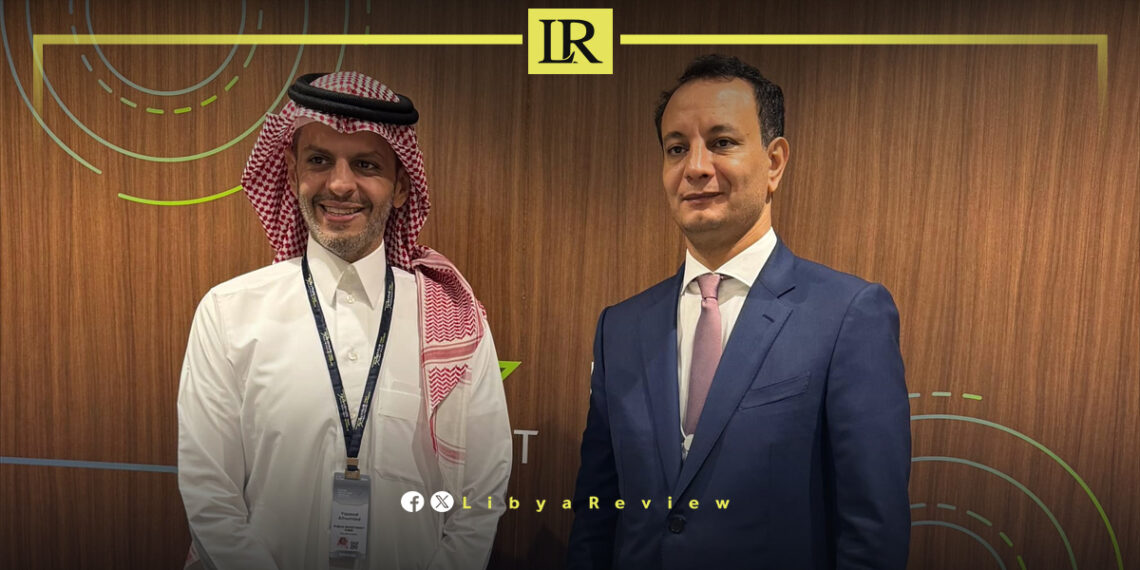On Thursday, the Director-General of the Libyan Development and Reconstruction Fund, Belgassim Khalifa Haftar, met with Dr. Yazeed Alhumied, Deputy Governor of Saudi Arabia’s Public Investment Fund (PIF), in Riyadh to discuss strategic collaboration for Libya’s reconstruction.
The meeting, which took place on the sidelines of a key investment conference, focused on opportunities to partner in rebuilding Libya’s essential infrastructure and advancing economic recovery following years of conflict.
Dr. Alhumied expressed his enthusiasm for Haftar’s participation in the conference, emphasizing the importance of expanding Saudi-Libyan economic cooperation. Both leaders discussed potential joint projects, especially in energy, infrastructure, and essential services—sectors vital to Libya’s stabilization and aligned with Saudi Arabia’s investment priorities.
Libya’s Development and Reconstruction Fund was established to address urgent post-conflict rebuilding needs. After over a decade of instability that has severely impacted Libya’s economy, the Fund is focused on developing infrastructure in critical areas such as transportation, energy, healthcare, and housing.
Through targeted investment and strategic partnerships, the Fund aims to restore essential services and stimulate sustainable economic growth across the country.
Saudi Arabia’s Public Investment Fund, with assets exceeding $700 billion, is central to the Kingdom’s Vision 2030 plan—a transformative economic diversification initiative championed by Crown Prince Mohammed bin Salman.
PIF has a broad international portfolio, with investments in infrastructure, energy, technology, and more, aimed at expanding Saudi Arabia’s global economic influence. By partnering with Libya’s Reconstruction Fund, PIF sees an opportunity to support stability in North Africa while advancing its own international growth strategy.
During their discussions, Haftar and Alhumied explored several potential areas for cooperation. These included energy projects where Libya’s rich oil and gas resources could attract Saudi investment to increase production and modernize infrastructure.
Saudi expertise in large-scale infrastructure projects could also support Libya’s rebuilding needs in sectors like healthcare, utilities, transportation, and housing, all crucial for Libya’s economic revival and long-term stability.


